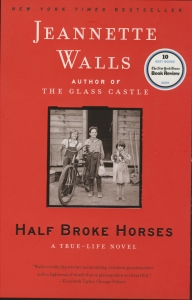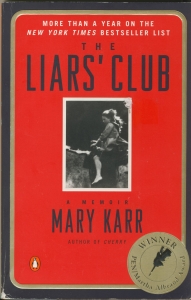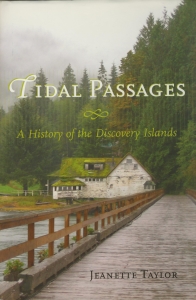Writing Choices,
Expectations, Conventions & Perils.
What is your Genre?
Novel
 The author creates a fictional world through imagination, creativity, design AND reality. Researches for accuracy, authenticity and believability. Must examine yourself and your characters. As a creator of character, you must understand people; be interested in all sorts and what makes them tick. Must be a keen observer. The goal: transport readers from their mundane world to embrace the fictional dream.
The author creates a fictional world through imagination, creativity, design AND reality. Researches for accuracy, authenticity and believability. Must examine yourself and your characters. As a creator of character, you must understand people; be interested in all sorts and what makes them tick. Must be a keen observer. The goal: transport readers from their mundane world to embrace the fictional dream.
Perils: author gets lost down the rabbit hole of invention. Subplots, backstory, supporting characters, and converging conflicts create problems with unity, integrity, and continuity. Author bias another peril.
Short Fiction
This form doesn’t follow the classic narrative pyramid. Brevity requires the first inciting event to unfold early. Diminishing action is much less than the buildup. No room for digression. No wasted words. The novel raises many “what ifs”, Short Fiction raises one. The goal: to create “the single effect” and deliver emotional impact and/or a flash of understanding. Its key virtue is its density. Many successful novelists cut their teeth and honed their craft on short story writing.
Perils: being concise is harder than it looks. The writer must rise to the challenge of shaping, showing and making significance economically. There is little space to develop character. Author must capture distinctive, telling details.
The Personal Essay
This is an art form with a long and honorable literary history. It embraces the author’s discrete sensibilities and the endless possibilities of meaning and connection, to seek resonance that gives to the reader thought, memory and emotion made richer by the experience of another. There are many stylistic and subject possibilities – lyric essay, spiritual essay, travel, memoir, humour, contemplative, nature writing… Personal essay is a very creative form.
Perils: you may fall in love with the personal essay and never write anything else.
Non-fiction Narrative
Authors make a pact with readers to tell the truth. They follow through with fact-finding missions, research, interviews. They may decide to enrich and embellish, while remaining faithful to the verity of the subject, by incorporating Creative Nonfiction (the tricks of the fiction writers trade) to enhance reader engagement. Goal: to inform, reveal, entertain.
Perils: writer attachment to information and data. Lumps of exposition will bog down narrative. There can be a tendency toward telling over showing. These problems block profluence (forward motion) and reader engagement, which all narrative needs. Nonfiction writers must attend to profluence in prose.
Memoir
 Not a chronology of life lived; Not everything remembered; Not self-administered therapy. Significant periods of time, place, change, situation, or crises. A memoirist looks back to illuminate and reveal. Memoir requires you know yourself in an honest way first. What matters is not what happened, but what the writer is able to make of what happened. Goal: to understand and share insight through the universality of the human condition.
Not a chronology of life lived; Not everything remembered; Not self-administered therapy. Significant periods of time, place, change, situation, or crises. A memoirist looks back to illuminate and reveal. Memoir requires you know yourself in an honest way first. What matters is not what happened, but what the writer is able to make of what happened. Goal: to understand and share insight through the universality of the human condition.
Perils: It is possible to become too self-absorbed. Remember your audience. The memoirist is under obligation to audience to lift from the raw material of life a tale that will shape, transform and deliver wisdom. The author is the maker of memoir, not the hero or the heroine.
Autobiography
The author/ subject recounts the unfolding of a life lived. Includes culture, era, context, setting, significant events and developments. Ones place in it all. Often chronologically told. Goal: to communicate the distinctiveness of one’s life. To show the developments and growth, challenges, high and low points.
Perils: author may be fixed on capturing “everything that happened” at the expense of an involving and vivid narrative. In a first draft autobiography, by all means, get everything down. This will help you detach from the material and evaluate what is important as you work through a second draft. Practice detachment. Carry more than the events forward – show what is universal in your recounting.
History:
 You want to write about a person, family, place or event from the past. You may have found letters and diaries in Great Aunt Jane’s attic. A pivotal event from the past has become family lore and you want to dig deeper for the facts. Goal: to capture, as faithfully as possible, an event from the past or a life from another era. You must become a subject expert. You’ll conduct research and interviews. You will need to look for primary documents and books of the time as your resources.
You want to write about a person, family, place or event from the past. You may have found letters and diaries in Great Aunt Jane’s attic. A pivotal event from the past has become family lore and you want to dig deeper for the facts. Goal: to capture, as faithfully as possible, an event from the past or a life from another era. You must become a subject expert. You’ll conduct research and interviews. You will need to look for primary documents and books of the time as your resources.
Perils: An avalanche of material, false leads and erroneous “facts”. You must be an open vessel, ready to receive, question and dig deeper. Hone those stories and details to the essential and connected threads, crafting a tale that becomes an engaging read. The rest of that research will remain in your files for posterity.
Annette Yourk – Feb. 2015
